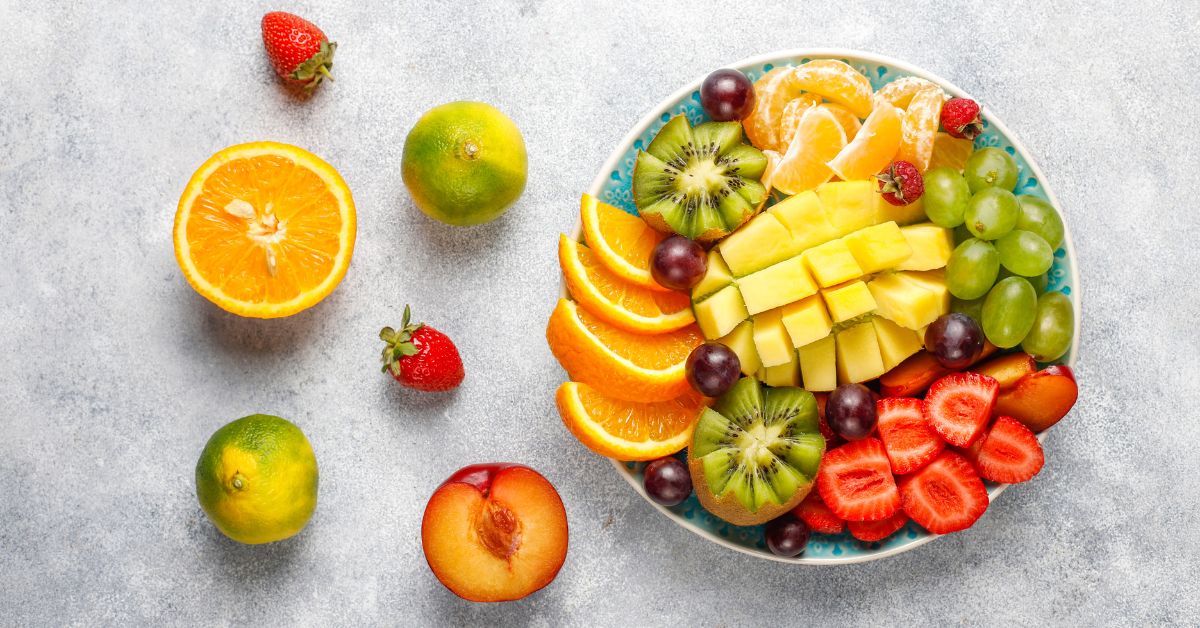The Best Time to Eat Fruit for Weight Loss, Energy, and Sleep

Best time to eat fruit: You can benefit from the nutrients and antioxidants in fruit at any time of day. However, you might notice subtle differences in your energy or appetite depending on when you eat it.
Best Time for Weight Loss
If you’re trying to lose weight, the best times to eat fruit include:
Before a meal: Eating fruit before a meal may help curb your appetite so that you eat less at mealtime, which may help you lose weight.
As a dessert, Most fruits are low in calories and make a good replacement for high-calorie, processed desserts while still delivering a touch of sweetness.
Before a workout: Eating fruit before a workout can help boost your energy so you get more out of your workout, helping you build muscle and burn fat.
If you’re trying to reduce your appetite or improve your workouts, aim for fruits that have high fiber and carbohydrate (carb) content, which will keep you full and give you energy to burn. These include:
Apples: 1 medium apple contains 24 grams (g) of carbs and 4 g of fiber.3
Berries: 1 cup of sliced strawberries contains 13 g of carbs and 3 g of fiber.
Unripe bananas: 1 slightly ripe banana contains 26 g of carbs and 2 g of fiber.
For dessert replacements, on the other hand, focus on fruits that are particularly low in calories but still taste sweet:
Grapefruit: 69 calories per cup (with juice)
Cantaloupe: 53 calories per cup
Honeydew melon: 61 calories per cup
Watermelon: 46 calories per cup
Papaya: 62 calories per cup
Strawberries: 49 calories per cup

Best Time for Energy
Best time to eat fruit, If you’re feeling sluggish and want to get energized, consider eating fruit at these times:
Before a workout: For more energy during your workout session, eat fruit 30 minutes before exercising.
After a workout: Fruit contains water, electrolytes, and carbs that can replenish your energy after a tough workout.
First thing in the morning: There is not much evidence to support eating fruit in the morning compared to other times of day. Still, the carbs, fiber, and nutrients in fruit will give you an energy boost in the morning (or whenever you eat them).
Many fruits are high in carbohydrates, natural sugars that the body converts into energy, which it uses to function.
Some high-carb fruits include:
Raisins: 29 g carbs per 1/4 cup
Banana: 26 g carbs per banana
Grapes: 19 g carbs per cup
Apple: 24 g carbs per medium apple
Cherries: 22 g carbs per cup
Pear: 27 g carbs per medium pear
Mango: 25 g carbs per cup
Blueberries: 22 g carbs per cup
Pineapple: 20 g carbs per cup
Fruits also contain electrolytes like magnesium, potassium, calcium, and phosphorus. Electrolytes don’t directly give your body energy, but they do help with energy production and fluid balance, maintaining your energy sources when they get depleted from physical activity and sweating.
Fruits that are rich in electrolytes include:
Avocados
Bananas
Cherries
Figs
Oranges
Strawberries
Watermelon
Best Time for Sleep
For better sleep, eat fruit:
Two or more hours before bed: Some people find that certain fruits cause bloating or gas, so avoid eating them too close to bedtime so that this doesn’t keep you up.
People who experience an upset stomach from fruit might be sensitive to fermentable carbohydrates, which are sugars that are fermented in their gut during digestion. This is common for people with irritable bowel syndrome (IBS).
Best time to eat fruit, The two main fermentable carbohydrates found in fruit are fructose and sorbitol. Limiting fruits high in these sugars, especially before bedtime, may help you feel (and sleep) better.
Fruits high in fructose include:
Apples
Cherries
Dried fruit
Figs
Mangos
Pears
Watermelon
Fruits high in sorbitol include:
Apples
Cherries
Peaches
Pears
Plums
There are hundreds of different types of fruit, each with a unique nutritional profile. Some are more fiber-packed, whereas others contain more sugar, antioxidants, electrolytes, or specific vitamins.

Downside of Eating Fruit
Fruit is an essential part of a healthy diet. The World Health Organization recommends that adults eat at least five servings of fruits and vegetables daily.
There aren’t many downsides to eating fruit, although, as with anything, try not to overdo it.
Also, aim to eat whole fruits or fruits in smoothies, and limit processed forms of fruit like juices or dried fruit. These contain less fiber and more sugar, and don’t have as many health benefits.
Who Should Avoid Fruit
Most people will be able to comfortably eat a variety of fruits as part of a balanced diet. However, there are a few exceptions:
Allergy: Of course, avoid any fruits that you are allergic to. The most common fruit allergens are banana, peach, and kiwi.
IBS: As discussed above, certain fruits can trigger symptoms for people with IBS. Talk to your healthcare provider about following the low FODMAP diet (a medical diet to find IBS triggers)
Diabetes: People with diabetes need to limit foods that have a high glycemic index, meaning they affect blood sugar. Some fruits aren’t recommended for people with diabetes.
Acid reflux: Citrus fruits (e.g., lemon, lime, grapefruit, and orange) can trigger acid reflux in people.
Also Read:
How to make chia seed water for weight loss: An easy 6 step recipe
Trash the crash diet. Try these 11 weight-loss foods instead
10 smoothies for weight loss: Quick and tasty recipes to help you lose extra pounds




